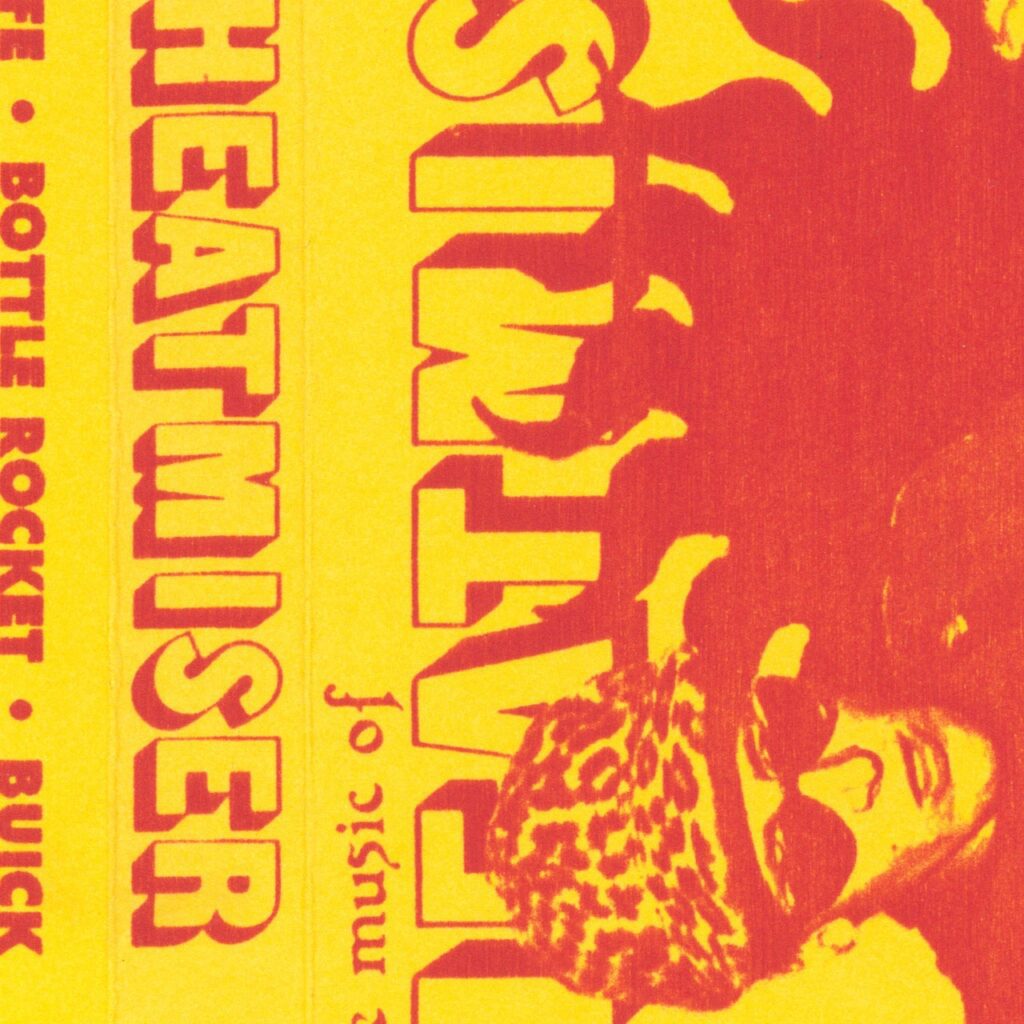When Elliott Smith and his college buddy Neil Gust formed Heatmiser in Portland in the early ’90s, all the pieces started falling into place. They had two supremely talented songwriters, a thrashing yet tuneful alt-rock sound, and a local following from their sold-out performances at the local club La Luna. Onstage, they were “just a phenomenal, rip-your-head-off-and-shove-it-up-your-ass rock band,” the group’s manager, JJ Gonson, later recalled.
So, what happened? Elliott Smith happened. Relations within Heatmiser deteriorated during the recording of their third album, 1996’s Mic City Sons, and the band broke up just as Smith’s solo career was taking off. Within two years, he was performing at the Oscars while his old band was relegated to coulda-been status. Now, 30 years after Heatmiser’s debut, 1993’s Dead Air, a sprawling, 29-track compilation takes stock of their fiery early recordings and fills in some blanks, making a persuasive case for their undersung greatness.
Heatmiser—rounded out by bassist Brandt Peterson and drummer/engineer Tony Lash—were exhilarating from their first 1992 demo, which comprises the first six tracks here, four of which appeared in slightly more polished form on Dead Air. Each song got in and out in about two minutes and would’ve fit on any college radio playlist in the country. “Lowlife” is a pounding statement of intent, led by Smith’s youthful torment (“I’ve got a plague/Plague in my head”), while “Buick” showcases Gust’s twangier delivery and more narrative-driven songwriting. On “Dirt,” the two singers trade lines and egg each other on, sounding remarkably like Ian MacKaye and Guy Picciotto of Fugazi. Similarly, the previously unheard “Just a Little Prick,” with its hulking bass groove, could pass for a Repeater outtake.
Both Smith and Gust sound consumed with angst and self-loathing. Gust grappled with his alienation as a gay man, a subject he addresses obliquely on “Candyland” and “Can’t Be Touched” (“They’re all so straight they’d swear the earth was flat/And that the bend is in my head,” he sings on the latter). Smith, who removed feminine pronouns from some of his love songs in solidarity with his friend, confronts his own disillusionment with masculinity on “Man Camp,” a darkly funny skewering of the mythopoetic men’s movement.
Despite its definitive title, The Music of Heatmiser is not a career-spanning set. The focus is on Heatmiser’s early recordings, demos, and live cuts from 1992 and 1993, when they played an intense, somewhat derivative brand of post-hardcore, borrowing from trailblazers like Hüsker Dü, Nation of Ulysses, and of course Fugazi. Smith’s vocal style back then—gruff, loud, deep—will come as a shock to anyone only familiar with his solo records. His contributions to Heatmiser’s later albums, particularly Mic City Sons, offer hints of his folk-pop melodicism, but you won’t find any of them here. Instead, we get a charming cover of the Beatles’ “Revolution” and a live recording of the band’s 1993 set on KBOO—a compelling document of their live prowess that’s also a bit repetitive, since most of the tracks also appear on the compilation in demo form.
In retrospect, Smith’s rise as a solo artist seems so preordained that it’s easy to forget how unfashionable his hushed, acoustic style seemed in the mid-’90s. As Smith once reflected, “I thought my head would be chopped off immediately when [Roman Candle] came out because it was so opposite to the grunge thing that was popular.” If it was Smith’s willingness to buck trends that made his records stand out, then Heatmiser had the opposite problem. They were great, but they sounded like a lot of other fashionable bands, too, struggling to fully break out from the pack. The Music of Heatmiser conveys what was so compelling about the band in its nascent period and what was soon to come from Smith: They had caterwauling energy and angst to spare, yes, but they also had the songs.
All products featured on Pitchfork are independently selected by our editors. However, when you buy something through our retail links, we may earn an affiliate commission.

